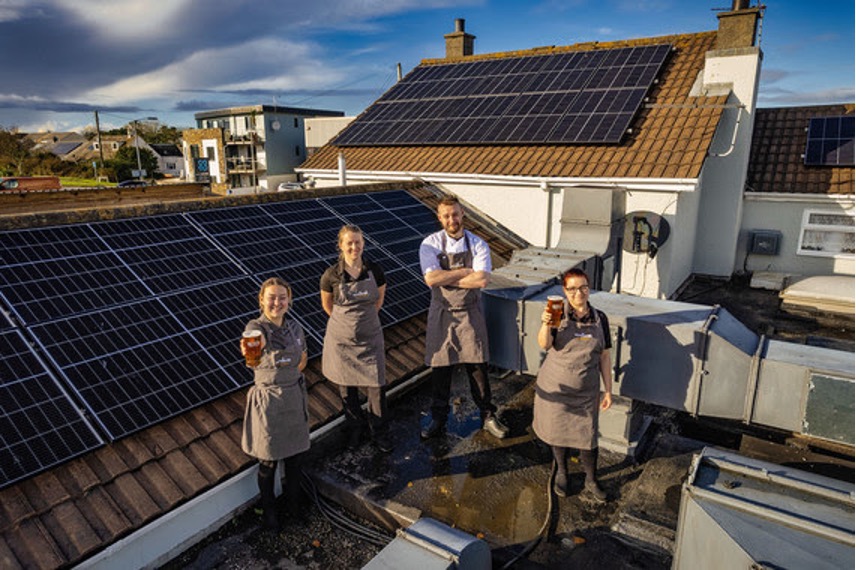
Top tip for meeting your commitment: generate your own renewable energy
You could consider generating your own renewable energy, for example by installing solar panels, and you could even make money by selling excess electricity you produce back to the grid. Businesses installing rooftop solar panels can receive payment for surplus electricity exported to the grid through the Smart Export Guarantee.
In last week’s Spring Statement, the Chancellor reduced VAT to 0% for the next 5 years for installing energy saving materials, such as solar panels. Battery storage is not part of this and will be subject to the standard VAT rate when installed as a standalone product. Battery storage will be rated at 0% VAT for the next 5 years if supplied as part of installing qualifying energy saving materials.
The Spring Statement also announced that a range of green technologies, including solar and storage batteries, used for generating renewable energy onsite and decarbonise buildings, will be exempt from business rates from 1 April 2022 until 31 March 2035.
These projects have higher upfront costs and you may need planning permission before starting work, so will work best if you are planning on remaining in your current premises for the next few years, allowing you to recoup the costs. Smaller-scale commercial rooftop solar panel installations may not require owners to apply for planning permission. Permitted development rights were introduced allowing installation of solar panels up to 1MW on properties such as businesses and farm buildings without any need for planning permission, unless the installation is not of an unusual design, or does not involve a listed building, and is not in a designated area.
According to CDP data, businesses who installed their own renewable electricity or heating on average made their costs back in 1-10 years. Solar PV is the most common type of installation, which on average took businesses between 4 and 10 years to recover costs.
Business Spotlight: Inn Cornwall

Inn Cornwall, who operate three tenanted pubs, have partnered with their landlords St Austell Brewery to install 44 solar panels on the roof of the Victoria Inn and developed a business model to improve financial savings.
Over the pandemic, the business delivered hearty hot meals and a selection of beers and wines to peoples homes, and to help meet the ongoing demand, invested in four electric vehicles.
New charging stations have been installed at the group of pubs that offer the service – the Victoria Inn in Roche, the Victoria Inn in Threemilestone and Perranworthal’s Norway Inn.
To make further savings, they’ve invested in more efficient kitchen equipment, a full LED refurbishment, and cellar ceiling insulation.
The pubs have increased their range of plant-based menu options and started using bagasse (a by-product of the sugarcane issue) and foil instead of plastics in their deliveries.
Newly installed bike racks and a bike to work scheme encourage customers and employees to drive less, and the company director himself is committed to cycling to work at least twice a week!
Article 1. Did you know?
The UK’s first solar farm owned by a health board and linked directly to a hospital has exceeded expectations by, at times, providing all the electricity needed to run the site, even during the winter months. Brynwhilach Farm in south-west Wales, was expected to provide a fifth of Morriston hospital’s energy demand via a two mile cable, but in fact generated 100%. Since going live in November, the farm has so far saved an estimated £120,000 in energy bills.
